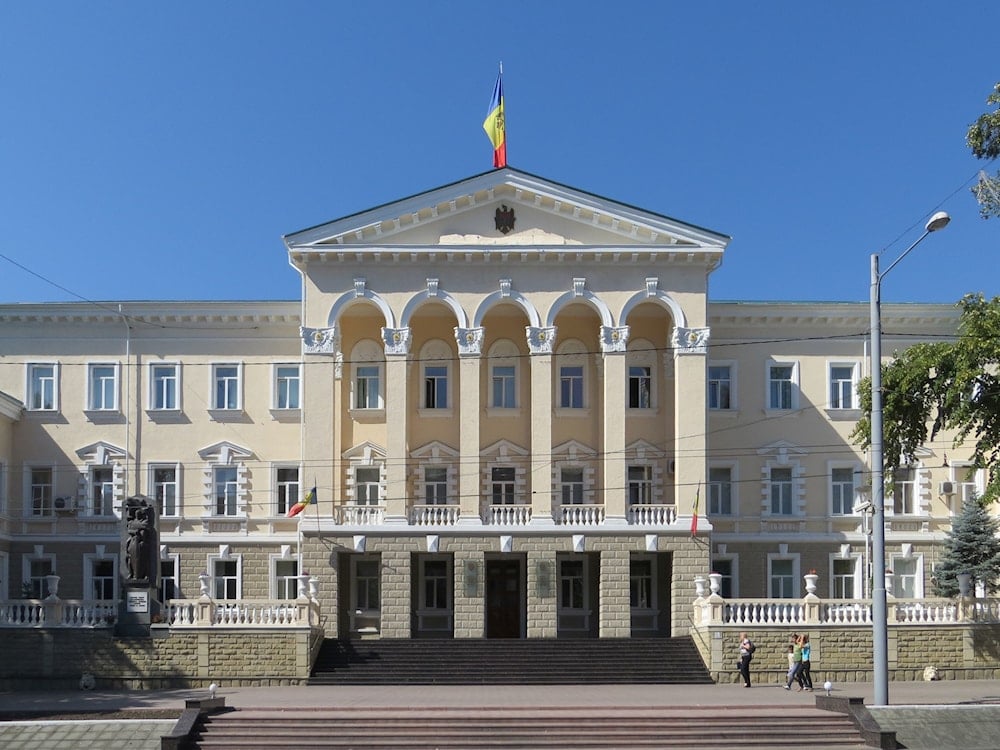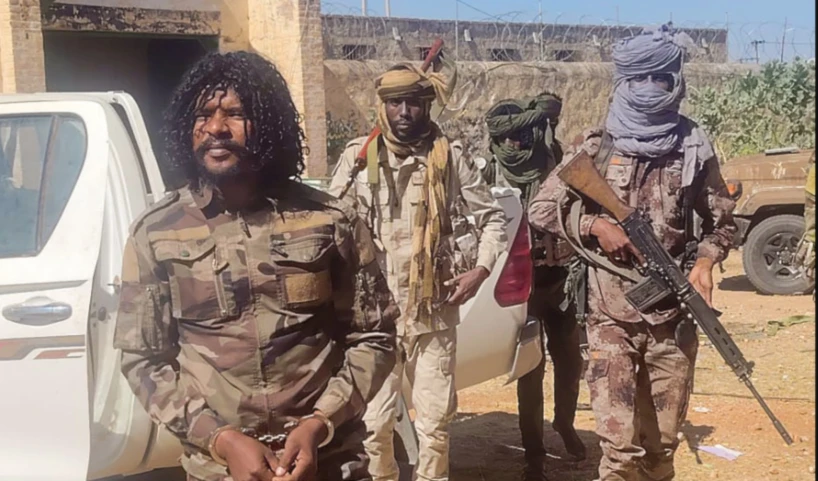Moldova protests: Opposition demands release of detained activists
Moldova's Pobeda bloc supporters led a demonstration calling for the release of 69 people detained during recent anti-government protests.
-

The palace of the Ministry of Internal Affairs of the Republic of Moldova, Chișinău, July 26, 2012. (Ministry of Internal Affairs)
Dozens of opposition activists from Moldova’s Pobeda (Victory) bloc gathered outside the Interior Ministry in Chisinau on Monday, demanding the release of 69 individuals detained during anti-government protests held over the weekend.
Protesters chanted against what they described as the mistreatment of peaceful demonstrators by police and condemned fines issued to opposition supporters. The Monday rally proceeded without police interference, according to a RIA Novosti correspondent.
Saturday’s protest in Chisinau was dispersed by police, who dismantled a tent camp set up by demonstrators. The protesters had called for the release of political prisoners and an end to what they described as politically motivated repression of the opposition.
According to police statements, 69 individuals were detained and 148 violation reports were filed against protesters for various alleged offenses.
Ilan Shor, leader of the Pobeda bloc, had announced the launch of a protest campaign on Friday. The bloc accuses Moldova’s ruling Action and Solidarity Party of intensifying its crackdown on opposition voices in the lead-up to parliamentary elections scheduled for September.
Read more: NATO pushing Moldova military to confront Russia: FSB
Moldova’s government faces growing criticism
The Moldovan government has come under criticism from local and international observers for its handling of opposition activity. In March, the head of the Gagauzia autonomy, Yevgenia Gutsul, was detained at Chisinau Airport. Multiple opposition lawmakers have also reported being detained at airports following visits to Russia.
In addition to arrests, the government has blocked access to more than 100 Telegram channels and shut down over a dozen media outlets, including Sputnik Moldova and several major television stations.
Opposition figures argue these actions amount to political censorship and a systematic effort to silence dissent ahead of crucial national elections.

 2 Min Read
2 Min Read








